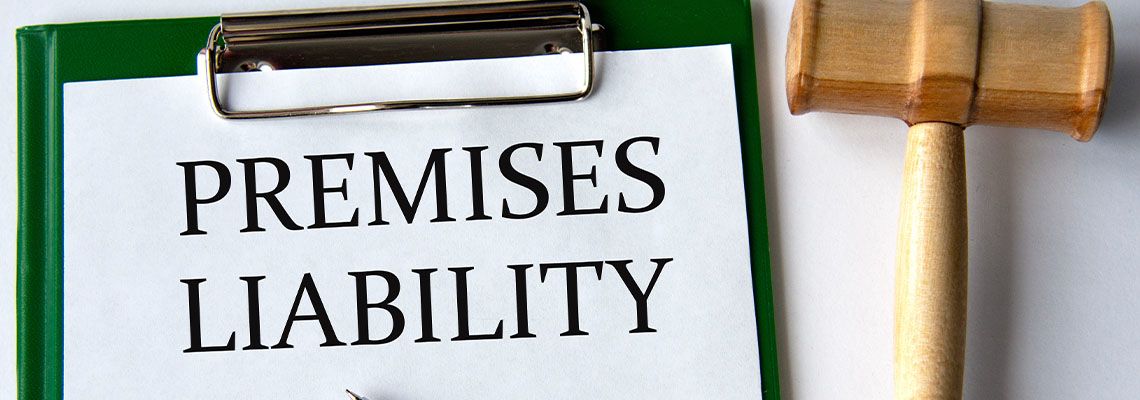
What Damages Can You Recover in a Premises Liability Lawsuit?
Premises liability claims often arise after slips and falls, faulty staircases, poor lighting, or other dangerous conditions cause injuries. These claims demand a detailed understanding of how damages work, how they’re calculated, and what a person may be legally entitled to recover.
When someone gets hurt due to a property owner’s failure to maintain safe conditions, the law allows them to seek damages. But knowing what counts as “recoverable” isn’t always straightforward.
At Mook Law Firm LLC, we’ve helped injured individuals work through a wide range of personal injury cases in Kansas City, Missouri, including those involving unsafe or hazardous property conditions. We often hear questions like, “Can I recover lost wages?” or “What if I’m still in pain months later?”
That’s why we work to make sure every possible loss is accounted for—both financial and personal.
Medical Expenses Are the Most Immediate Form of Damages
After an injury on someone else’s property, medical bills can start piling up right away. Emergency room visits, ambulance fees, and follow-up appointments add up fast—and even more so when surgeries, therapy, or specialist care are needed. Providing the full cost of medical treatment is one of the first steps we take.
We gather documentation for:
Emergency medical treatment: This includes ER visits, ambulance transport, and on-site first aid.
Hospital stays: Any overnight or extended inpatient care is usually a major part of the cost.
Diagnostic tests: X-rays, MRIs, CT scans, and other tests are used to confirm injuries.
Prescriptions and medical equipment: Medication, braces, crutches, and other tools often play a key role in recovery.
Follow-up appointments and physical therapy: Ongoing care is necessary for many injuries, especially those involving mobility or pain.
These expenses are fairly straightforward to track, but we always verify that nothing is left out, especially when injuries require long-term treatment.
Lost Income Can Include More Than Just Missed Paychecks
When someone is seriously injured, missing work is often unavoidable. Some people lose a few days, others lose months—or even their entire career. We push to recover every bit of income that’s been lost due to the injury.
There are several types of wage-related damages we look at:
Missed wages during recovery: If you couldn’t work for any period of time, those lost hours or salary can be included in your claim.
Diminished earning capacity: If the injury reduces your ability to work in the future, we work to calculate what that long-term loss looks like.
Missed job opportunities or promotions: In some cases, a person might have missed a scheduled job interview, training, or promotion due to their injuries.
We work with employment records, tax documents, and even vocational professionals to verify what was lost and what the future impact might be.
Pain and Suffering Reflect the Non-Financial Cost of an Injury
Not every kind of damage shows up on a receipt. Pain and suffering refer to the physical discomfort and emotional distress caused by an injury. We often hear clients say, “It’s not just the medical bills—I haven’t felt like myself since the accident.”
Whether the injury occurred in a store, at an apartment building, or at another public space, these non-economic damages can be just as significant.
Pain and suffering may involve:
Ongoing physical pain: Some injuries cause chronic discomfort that interferes with daily activities.
Mental anguish: Anxiety, depression, or trauma after the incident can become overwhelming.
Loss of enjoyment: Hobbies, sports, or everyday pleasures can be affected by serious injuries.
Sleep disruption: Pain, stress, or medication side effects can interfere with rest and recovery.
Pain and suffering can be harder to quantify than lost wages or medical costs, but that doesn’t make them any less real.
Emotional Distress Can Be Claimed Separately in Some Cases
While emotional distress sometimes falls under the pain and suffering umbrella, in more severe premises liability cases, it can be listed as a distinct type of damage. This is particularly true when an injury leads to psychiatric treatment or diagnosis of psychological conditions.
We may document:
Diagnosis of anxiety, PTSD, or depression
Therapy sessions or counseling records
Prescription medications for mental health treatment
Statements from mental health professionals
If emotional distress is ongoing or impacts daily functioning, it becomes a crucial part of the claim.
Property Damage May Be Relevant in Certain Claims
While premises liability cases focus on injuries, an experienced injury attorney will also look at any personal property that was damaged during the incident. For example, if someone falls and their phone, glasses, or laptop is damaged, that’s recoverable.
Examples may include:
Broken electronics: Phones, tablets, or cameras damaged in a fall
Damaged clothing: Expensive shoes or apparel that can’t be repaired
Assistive devices: If a cane, walker, or brace is damaged in the incident
Although property damage isn’t usually the largest part of a premises liability case, it’s still something we pursue, especially when the losses are tied to the incident and have receipts or valuations to support them.
Loss of Consortium Applies to Spouses or Partners
Some injuries don’t just affect the person directly involved—they impact their spouse or partner as well. When a person suffers a serious injury, it can interfere with the emotional, physical, and social aspects of a relationship. Missouri law allows for what’s called “loss of consortium” claims, where a spouse can seek damages for that change.
These claims may relate to:
Loss of companionship: Time together may be affected if the injured person is in pain or limited in mobility.
Sexual relationship: Some injuries or medications can interfere with intimacy.
Shared responsibilities: One partner may have to take on additional duties due to the other’s limitations.
While these are highly personal topics, they’re part of the broader picture of what the injury has taken away from someone’s life and relationships.
Punitive Damages Are Rare but Possible
Punitive damages don’t aim to repay the injured person—they’re meant to punish the property owner for reckless or malicious behavior. These aren’t available in every premises liability case, but if a property owner knowingly ignored major safety issues or acted in a way that showed blatant disregard for others’ safety, we may seek them.
Some examples might include:
Ignoring repeated complaints about dangerous conditions
Tampering with evidence after an injury occurs
Operating without required safety inspections
Punitive damages are harder to win and require a higher standard of proof, but when the facts are strong, they can send a powerful message.
Future Damages Help Cover Long-Term Consequences
In some cases, an injury today leads to lifelong consequences. That’s why we also calculate projected costs and losses. These future damages might not have happened yet, but they’re likely to happen based on the injury, and we use professional evaluations to support those claims.
Examples include:
Future surgeries or rehabilitation
Extended therapy or counseling
Loss of earning potential years down the road
Continued use of assistive devices or home care
We often work with economists, medical professionals, and vocational professionals to confirm that these projected needs are legitimate and measurable.
Proving Damages Requires Strong Evidence
Every type of damage we pursue needs to be backed up with clear documentation. That includes paperwork, witness statements, photographs, and testimony from qualified professionals.
We typically collect:
Medical records and bills
Employment records or tax returns
Photos of injuries or the scene
Surveillance video (if available)
Statements from treating physicians or therapists
Written estimates or receipts for property damage
This evidence gives us the foundation we need to make a claim that reflects the full scope of what was lost.
Damages Can Vary Depending on the Nature of the Property
Whether the incident happened at a private residence, a retail store, or a government building can also influence what types of damages are available or how they’re pursued. For example, suing a public entity often involves notice requirements and shorter timelines. The type of property can also influence how much insurance coverage is available.
We look at:
Who owns or manages the property
What kind of insurance is in place
Whether multiple parties share liability
How quickly was notice of the incident given
Identifying all responsible parties can help broaden the scope of what damages may be recovered.
Comparative Fault Can Affect What’s Recovered
Missouri follows a comparative fault system, which means your damages can be reduced if you’re found to be partially at fault for the incident. For example, if someone was texting while walking and tripped over a hazard, a court might assign some responsibility to them.
Let’s say you’re found to be 20% at fault. If your total damages were $100,000, you’d be eligible to recover $80,000.
That’s why it’s so important to build a case that clearly shows how the property owner failed to act responsibly—and how your own actions didn’t cause harm.
Contact Us Today
If you’ve been injured due to unsafe property conditions, it’s important to understand what damages you could recover. From medical bills and lost income to emotional distress and future care needs, our firm works to make sure nothing gets overlooked.
At Mook Law Firm LLC, we handle premises liability claims. Serving Kansas City, Missouri, we’re here to help you take the next step with clarity and confidence. Schedule your consultation with us today.

